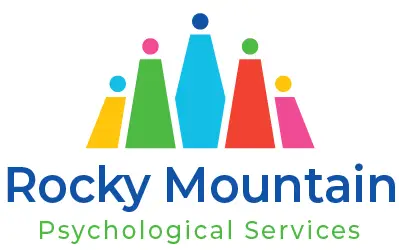Introduction: Developmental Expertise That Spans Generations
At Rocky Mountain Psychological Services (RMPS), our foundation in child psychology is more than a specialty; it’s the cornerstone of our approach to understanding human behavior across every stage of life.
Since we specialize in children and adolescents, we deeply understand how emotional patterns form, how relationships shape identity, and how early coping styles evolve into adult behavior. This developmental insight gives our clinicians a unique advantage when supporting both teens and adults: we see not only where a person is now, but how they got there.
This perspective allows us to provide age-appropriate, evidence-based care, whether we’re helping a teenager navigate identity struggles or guiding an adult through long-standing patterns rooted in childhood experiences.
At Rocky Mountain Psychological Services, our roots in child and adolescent psychology shape the way we support clients across the lifespan. Because our team is extensively trained in developmental science, trauma treatment, expressive arts, and play-based modalities, we bring a unique lens to both teen and adult therapy. This background also informs our use of advanced interventions such as neurofeedback; an evidence-backed tool for improving emotional regulation and healing trauma.
Teen Therapy: Building Resilience and Emotional Understanding
The adolescent years are often turbulent. It is a time of growth, self-discovery, and sometimes, confusion. At RMPS, our clinicians draw on their child psychology background to meet teens where they are developmentally struggling.
Teen therapy focuses on building emotional awareness, communication skills, and self-regulation. Many adolescents come to therapy struggling with anxiety, depression, social pressure, or family conflict.
Our approach emphasizes:
- Emotional literacy: helping teens name and understand their feelings
- Coping strategies for academic and social stress
- Healthy identity formation and boundary-setting
- Strengthening family communication
Evidence supports these tailored interventions. A Cochrane review found that Cognitive Behavioral Therapy (CBT) significantly reduces anxiety symptoms in children and adolescents, showing that skill-based, structured therapies are particularly effective for younger populations (James et al., 2015). RMPS specializes in child and adolescent psychology, due to which our clinicians have advanced training in expressive arts therapy and play therapy. These modalities are especially effective for trauma because they help teens process emotions nonverbally, access difficult memories safely, and express themselves in developmentally appropriate ways (Malchiodi, 2015).
RMPS clinicians are trained in developmental psychology and family systems, due to which we don’t just treat the symptoms. We work with teens to build lifelong emotional tools that evolve with them into adulthood.
Teens who have experienced trauma or chronic stress may also benefit from neurofeedback, a non-invasive technique that helps the brain learn new patterns of self-regulation. Research shows that neurofeedback significantly reduces PTSD symptoms and improves emotional stability in trauma-affected individuals (van der Kolk et al., 2016; Peniston & Kulkosky, 1991).
Adult Therapy: Healing Through Insight and Integration
Our work with adults at RMPS is grounded in the same developmental understanding that guides our child and teen therapy but with a different focus. Since our clinicians are trained in how early experiences shape adult coping, we can help clients uncover the root of their challenges rather than just addressing surface-level symptoms. Our developmental expertise also makes RMPS uniquely suited to support adults with ADHD or Autism Spectrum Disorder, conditions rooted in early neurodevelopment but often diagnosed later in life. We also work closely with parents navigating stress, burnout, behavioral challenges at home, or the emotional demands of raising children with complex needs. By combining developmental knowledge with trauma-informed care, we help adults build healthier patterns and more confident family relationships.
Adult therapy often involves healing and integration rather than building foundational skills. Many adults come to us seeking:
- Support with parenting
- Gain understanding and strategies for ADHD or Autism
- Resolve early-life trauma
- Break long-standing emotional patterns
- Navigate relationship challenges
- Manage anxiety, depression, or burnout
A large meta-analysis published in JAMA Psychiatry found that psychotherapy outcomes for depression vary across age groups, with effect sizes generally larger for adults than adolescents (Cuijpers et al., 2020). This supports what we see clinically: adult clients often bring more life experience and self-awareness to therapy, which can enhance reflection and change.
While expressive approaches are often associated with youth therapy, many adults also benefit from art-based or experiential methods to process trauma or emotional blocks. Our background in these child-centered modalities enables us to adapt them thoughtfully for adults who may struggle to put complex emotional experiences into words.
At RMPS, we use modalities like Cognitive Behavioral Therapy (CBT), Acceptance and Commitment Therapy (ACT), and trauma-focused approaches such as Internal Family Systems therapy and neurofeedback therapy.
For adults working through trauma, neurofeedback offers a structured and research-supported way to calm the nervous system and retrain brainwave patterns linked to anxiety, dissociation, or hyperarousal. Studies demonstrate that neurofeedback can produce measurable improvements in trauma symptoms and overall regulation (van der Kolk et al., 2016).
Family Involvement: The Developmental Bridge Between Teens and Adults
Because RMPS’s foundation lies in child and adolescent psychology, we understand that therapy doesn’t happen in isolation especially for younger clients.
In teen therapy, family involvement is often an integral component. Parents may join occasional sessions or receive guidance on how to support their teen at home. This collaboration builds a bridge between what’s learned in therapy and the teen’s everyday environment.
Empirical evidence reinforces this approach: a systematic review and meta-analysis found that family-involved therapy led to better outcomes for children and adolescents with depression than individual therapy alone (Lenz et al., 2022).
For adult therapy, the focus naturally shifts. The therapeutic relationship becomes more collaborative and autonomous. Adults often work on internalizing support and processing their early family dynamics to achieve personal freedom and emotional clarity.
RMPS therapists are uniquely positioned to guide this process because understanding those early family systems is at the heart of what we do.
Communication and Methodology: Developmentally Tuned Care
Communication in therapy must meet clients where they are in their developmental stage – something our clinicians specialize in.
For teens, therapy tends to be experiential and active. RMPS therapists may integrate techniques such as:
- Art or journaling exercises for expression
- Role-play to enhance social skills
- DBT (Dialectical Behavior Therapy) strategies to manage emotion regulation
This style aligns with the finding that younger clients benefit most from structured, skills-oriented interventions (James et al., 2015).
For adults, therapy often involves reflective dialogue and meaning-making. Adults are better equipped to examine long-term narratives, explore values, and integrate insights into daily life.
Research by Cuijpers et al. (2023) confirms that CBT is effective across age groups but operates through different mechanisms. Younger clients change behaviors first, while adults shift cognition and belief systems more profoundly.
RMPS clinicians intentionally tailor their techniques based on these differences, ensuring developmental appropriateness and therapeutic depth.
Confidentiality and Trust: Building Safe Therapeutic Spaces
At every age, therapy depends on trust. But how that trust is built differs between teens and adults.
For teens, RMPS therapists carefully balance confidentiality with parental involvement. We maintain privacy to foster openness but communicate clearly with caregivers about general progress and safety. This transparency builds mutual trust among all parties.
For adults, confidentiality is absolute. Sessions are a private, judgment-free space to explore personal challenges. Our clinicians emphasize safety and respect. The same principles that guide our work with children and adolescents, applied within the adult’s autonomous framework.
The Continuum of Care: From Adolescence to Adulthood
What truly sets Rocky Mountain Psychological Services apart is our understanding of development as a continuum. The insight gained from years of specializing in child and adolescent psychology allows our clinicians to trace the threads that connect childhood experiences to adult patterns of thought and emotion.
Evidence-Informed Approach at RMPS
Our therapeutic choices are grounded in current research and developmental science. Neurofeedback has been shown to help trauma survivors significantly reduce PTSD symptoms and improve self-regulation (van der Kolk et al., 2016). Expressive arts therapy and play-based approaches have also demonstrated effectiveness in supporting emotional processing and trauma recovery (Malchiodi, 2015). By integrating these empirically supported methods with relational, culturally sensitive care, RMPS tailors therapy to the unique needs of each client, child, teen, or adult.
A 2023 meta-analysis found that while CBT is effective across the lifespan, the mechanisms of change vary, indicating that therapy must evolve alongside the person (Cuijpers et al., 2023). At RMPS, this principle is foundational: the therapy we offer a 15-year-old discovering their identity may lay the groundwork for the healing work we do with that same person as an adult years later.
Our clinicians don’t just address where you are but we understand how you got there and where you’re going.
Closing Note
At Rocky Mountain Psychological Services, our specialization in child psychology does more than define our niche. It deepens our understanding of the entire human journey. From the emotional turbulence of adolescence to the reflective depth of adulthood, our clinicians draw on developmental science to provide therapy that is empathetic, evidence-based, and uniquely attuned to each stage of life.
Whether we’re helping a teen find confidence or guiding an adult toward healing, we approach every client with the same goal: to foster growth, resilience, and emotional well-being that lasts a lifetime. While RMPS is known for its strong foundation in child and adolescent psychology, this expertise enriches the way we support adults as well. Understanding development allows us to see patterns, trauma responses, and emotional needs across the lifespan, which ultimately helps every client, at every stage of life, feel seen and supported.
References
- Cuijpers, P., Karyotaki, E., Eckshtain, D., Ng, M. Y., Corteselli, K. A., Noma, H., & Quero, S. (2020). Psychotherapy for depression across different age groups: A systematic review and meta-analysis. JAMA Psychiatry, 77(7), 694–703.
- Cuijpers, P., Karyotaki, E., Weitz, E., Andersson, G., Hollon, S. D., van Straten, A., … Ebert, D. D. (2023). Cognitive behavior therapy vs. control conditions, other psychotherapies, pharmacotherapies, and combined treatment for depression: A comprehensive meta-analysis including 409 trials with 52,702 patients. Psychological Medicine.
- James, A. C., James, G., Cowdrey, F. A., Soler, A., & Choke, A. (2015). Cognitive behavioural therapy for anxiety disorders in children and adolescents. Cochrane Database of Systematic Reviews, 2015(2), CD004690.
- Lenz, A. S., Thyer, B. A., & Spengler, P. M. (2022). Family involvement in psychotherapy for depression in children and adolescents: A systematic review and meta-analysis. Psychology and Psychotherapy: Theory, Research and Practice, 95(3), 817–833.
- Malchiodi, C. A. (2015). Calm, connection, and confidence: Using art therapy to enhance resilience in traumatized children. In D. A. Crenshaw, R. Brooks, & S. Goldstein (Eds.), Play therapy interventions to enhance resilience (pp. 126–145). The Guilford Press.
- Peniston, E. G., & Kulkosky, P. J. (1991). Alpha-theta brainwave neuro-feedback therapy for Vietnam veterans with combat-related post-traumatic stress disorder. Medical Psychotherapy, 4, 47–60.
- van den Berg, D. P. G., de Bont, P. A. J. M., van der Vleugel, B. M., van Minnen, A., & van der Gaag, M. (2015). Prolonged exposure vs eye movement desensitization and reprocessing vs waiting list for PTSD in patients with a psychotic disorder: A randomized clinical trial. JAMA Psychiatry, 72(3), 259–267.
- van der Kolk BA, Hodgdon H, Gapen M, Musicaro R, Suvak MK, Hamlin E, et al. (2016) A Randomized Controlled Study of Neurofeedback for Chronic PTSD. PLoS ONE 11(12): e0166752. https://doi.org/10.1371/journal.pone.0166752


